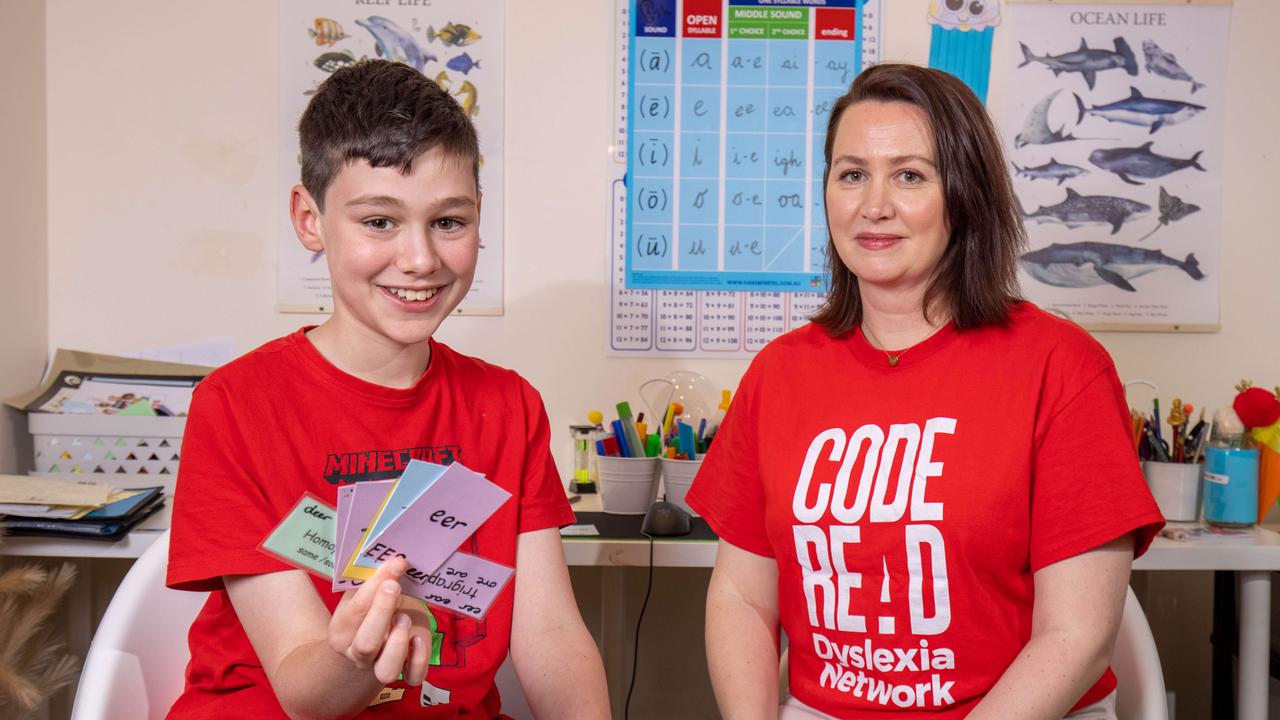Code REaD Dyslexia Network report calls for more support for struggling students
Too many children are unable to read or understand basic passages of text, a new report warns. But SA is being held up as a “lighthouse state” in moves to boost literacy levels.
It was when her son Auden struggled to sound out the word “C-A-T” in Reception that Laura Law realised he would need to learn in a different way to other kids.
“He just could not hold the sounds in his memory to be able to put that together and he wasn’t progressing in class,” Ms Law said.
Soon after they discovered Auden, now 11, is dyslexic.
“People say things like ‘wait and see’, ‘they’ll catch up’, ‘it’s a boy thing’ but now … you realise that’s not the case at all. If it’s not clicking, there’s a reason for that,” Ms Law, 39, said.
“You cannot have kids in a developed nation such as Australia getting to Year 6 and they can’t read and write.”

A new report out today warns that too many children and adults are unable to read or understand basic words or passages of text.
However, SA is being held up as a “lighthouse state” for making recent changes that set “a benchmark for other jurisdictions” to improve reading and writing skills.
The report, commissioned by Code REaD Dyslexia Network, highlights the team of literacy coaches deployed to SA schools and the introduction of a phonics check for all Year 1 students in 2017.
It notes SA students’ literacy performance is currently around the national average but forecasts the highlighted initiatives will deliver noticeable improvement in coming years.
The report also recommends states and territories introduce a second screening when students enter high school, fund small group tutoring and one-on-one intervention for struggling students and adopt targets to reduce the proportion of students who do not meet basic literacy standards.
The authors say small group tutoring can deliver struggling students four months worth of extra learning benefits and lead to increased earning capacity of up to 10 per cent a year.
Ms Law works as a dyslexia intervention tutor and also sends Auden for an hour-long session with a private tutor once a week.
A former teacher, Ms Law moved her son to St John’s Grammar for its learning support centre and said he was now up to his year level standard in spelling and reading.
She praised policies like the Year 1 phonics check but said there was still more support needed.
“We just assumed that if you’ve read to your child and you surrounded them with books they would pick it up,” she said.
“You actually have to teach it. You go through all the sounds individually … you teach the rules of the language and it’s all very explicit.”




